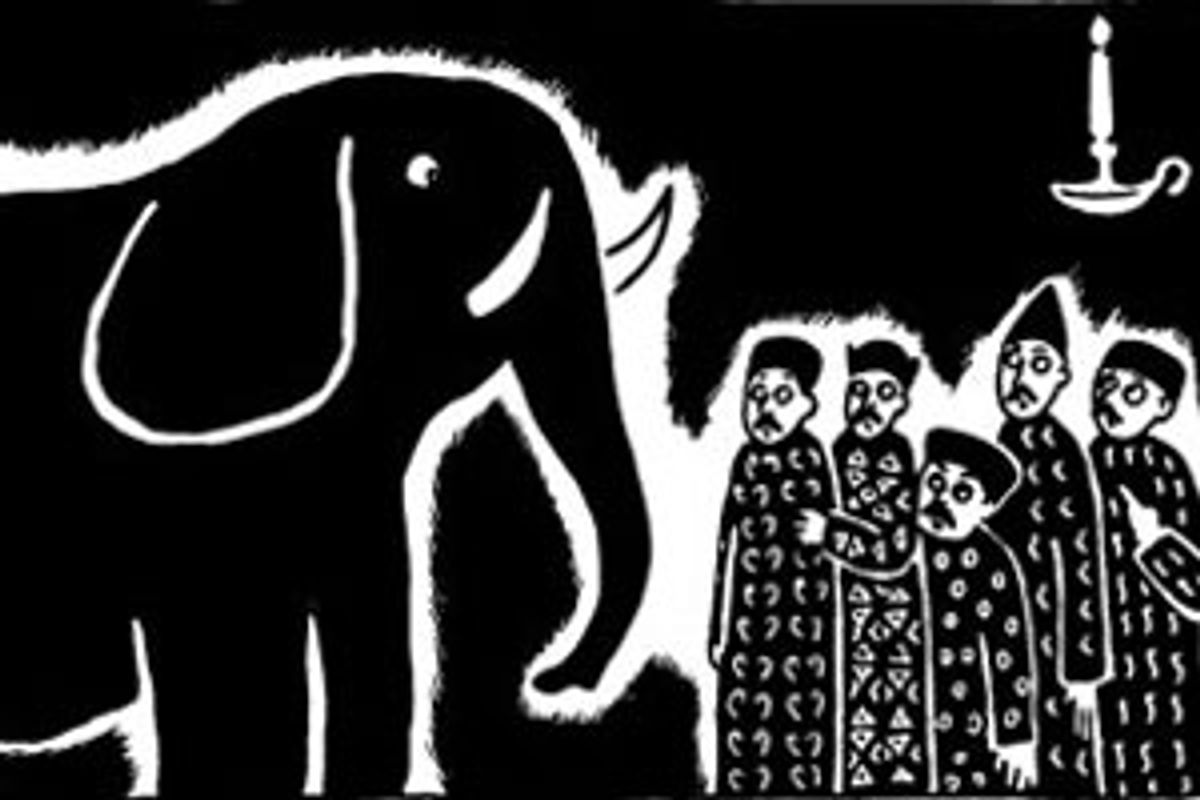Iranian graphic memoirist Marjane Satrapi's heralded books "Persepolis" and "Persepolis 2" chronicled the impact that the Iranian revolution had on her and her liberal-minded, cosmopolitan, secular family. Last year, when "Embroideries" was published, Michelle Goldberg spoke with Satrapi about, among other things, the relative worldliness of Iranians' private lives, George W. Bush and how security fears limit our freedoms. "People have stopped talking about pleasure," Satrapi said. "If you eat you're going to get high cholesterol. If you make love, you're going to get AIDS. If you smoke, you're going to get cancer. But smoking is a pleasure. Eating is a pleasure. Making love is a pleasure. OK, it's a risk sometimes. If you have freedom, then you have more risks."
This insight is explored in her latest book, "Chicken With Plums," where cigarettes are "food of the soul" and protagonist Nasser Ali Khan can find no pleasure in his life -- and so decides it is time to die. Ali, Satrapi's great-uncle, is an Iranian musician with a wife he doesn't love, children who don't respect him, a broken heart, a broken instrument, and unfulfilled fantasies about Sophia Loren. The book follows his final eight days on earth, as he lays in bed awaiting death. "Chicken With Plums" has a more somber tone than Satrapi's previous work; it is, after all, about a dying man. But it contains flashes of her familiar, caustic wit -- a lighthearted conversation with the angel of death, a young boy who refuses to stop singing for the duration of a long bus ride, and a family of Iranian exiles who come to America and get really, really fat. Set in 1958, just years after the CIA-sponsored coup, the book's overall mood reflects the disheartening gravity of these events -- as with all of Satrapi's work, the political is always personal.
In the excerpt that follows, Nasser Ali has just begun his fifth day of dying and recalls the events surrounding his mother's death.









Shares